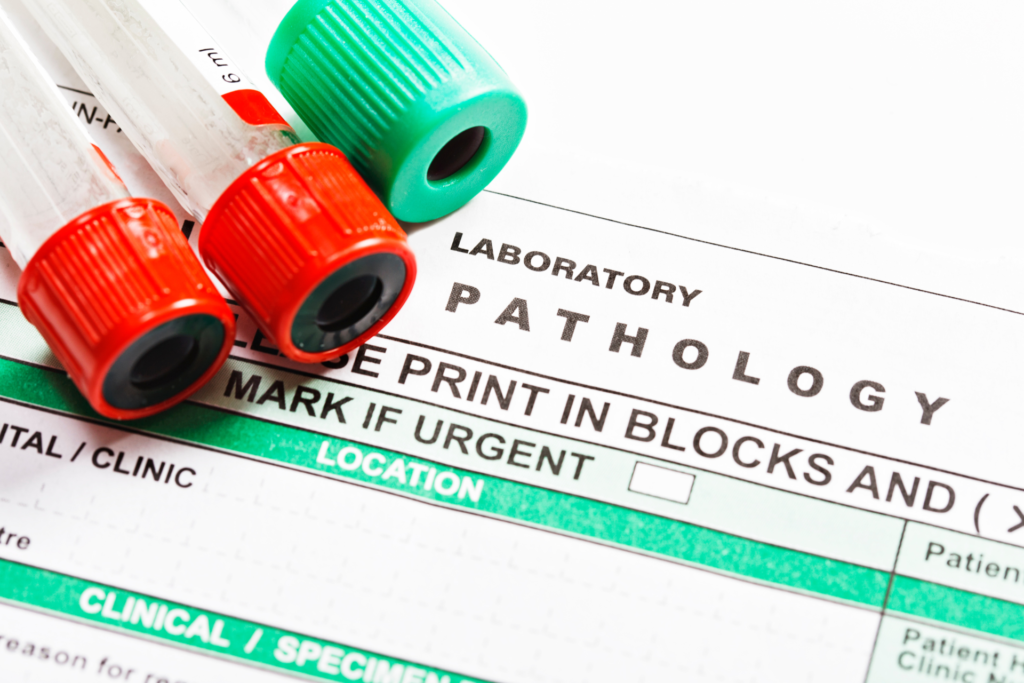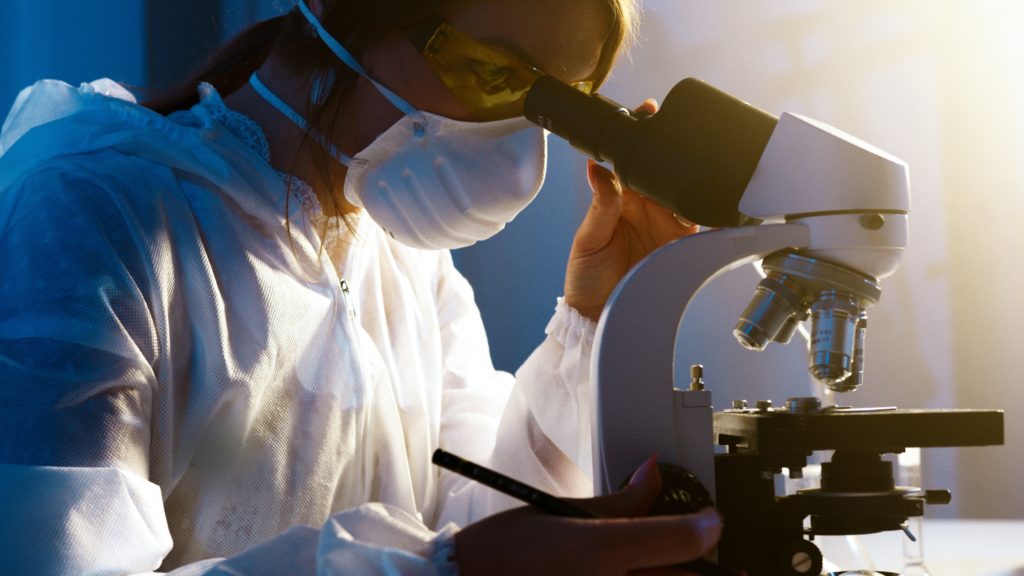We all strive to have healthy, radiant, glowing skin. For many of us, achieving healthy, glowing skin can be complicated. If you’ve experienced complexion issues, you’ve likely tried every cream, lotion, or make-up claiming to minimize the signs of aging, clear up acne, or firm and brighten dull skin. But, the answer may not lie in what you put on your skin but also in what’s happening inside your body.
Issues on the surface of your skin, such as acne, eczema, rosacea, or psoriasis, can indicate a health issue below the surface. To optimize your skin and achieve the healthy, glowing skin we all desire, it’s essential to dig deeper and consider what may be happening below the skin’s surface.
We can dig deeper and reveal any hidden obstacles to your health and well-being, including the health of your skin, with functional lab testing.
What Is Integrative Medicine and Functional Lab Testing

Integrative medicine is an approach to wellness that seeks to evaluate and treat the whole person (mind, body, and spirit) using traditional and natural medicine. Integrative Medicine practitioners leverage all appropriate therapies to facilitate healing and promote optimal health by considering factors like diet, genetics, hormones, and other lifestyle components as potential causes and treatments.
Integrative Medicine practitioners utilize laboratory testing as an invaluable tool for identifying what may be contributing to health issues. These specific functional laboratory tests aim to evaluate your health status by measuring how the body is functioning. These tests focus on function as a marker of health rather than identifying the presence of disease.
Why I Use Functional Lab Testing
Resolving deep-rooted complexion issues can be challenging, especially when you don’t know where to start. Or, you’ve tried so many treatments, and nothing is working. So, now what?
If we (as a team) know how your unique body functions, we can more effectively support your body’s healing processes, including understanding how your body processes nutrients, how you handle inflammation, or how your hormones function.
Functional labs allow us to understand your body, uncover the missing puzzle pieces for your health, and identify the root cause of your skin concerns.
Additionally, functional lab results can help facilitate the development of a personalized, targeted treatment plan that will improve your skin, overall health, and wellness.
4 Functional Lab Tests to Help Optimize Your Skin

Functional lab testing is an integral component in obtaining a comprehensive understanding of how your body functions. These tests provide us with the ability to understand what nutrient, microbial, hormonal, etc. imbalances are present to discern better why you may be experiencing certain specific skin health concerns. Only then can we identify what you need to help correct the underlying imbalance.
Whether we correct the imbalance with an herb, a diet, a medication, or a unique combination of all three, the end result helps restore your optimal health and glowing skin.
The following are the four most common functional lab tests that I use to help optimize your skin.
1. Stool Testing
Research has indicated a correlation between the gut microbiome, your emotional states, and your skin’s inflammatory response referred to as the gut-brain-skin axis. Your gut and your skin are linked, meaning that an underlying gut dysfunction such as leaky gut syndrome, yeast overgrowth, SIBO (small intestinal bacterial overgrowth), or dysbiosis can all contribute to poor skin health.
Stool testing gives us an insider’s guide to the gut microbiome. This test helps us identify microbial imbalances, overgrowth of bacteria, yeast, fungus, etc., an underproduction of anti-inflammatory microbes, and uncover how your body breaks down food.
The results of stool testing can help us fine tune which foods will feed beneficial microbes, which supplements, probiotics, or prebiotics will support healthy microbes, and if digestive support should be integrated to assist with your gut health.
2. Micronutrient Testing
Micronutrient testing evaluates your body’s levels of key nutrients – vitamins, minerals, fatty acids, and more – by looking at the cellular intake of these nutrients. This test tells us how well your body processes micronutrients in your foods and supplements. And if there is an imbalance, deficiency, or overproduction of micronutrients, including Vitamin A, Zinc, Selenium, Magnesium, B Vitamins, Niacinamide, and more. From this test, we can determine how well your body processes sugars, if your gut is hindering proper nutrient absorption, and the specific nutrients you need to supplement.
Identifying any micronutrient imbalances or deficiencies helps us ensure that your cells have all the tools they need to optimize their functions and for mitochondrial health (think anti-aging!), hormonal health, gut health, and brain and nervous system health.
3. Adrenal Testing
Adrenal testing evaluates how your body is really responding to stress by measuring the levels of the stress hormone cortisol. This test will help us understand how your body is mounting a stress response and if it is a functional or dysfunctional response – allowing us to understand if your system is overwhelmed and in need of support.
You don’t want to push your stress aside and wait for a system breakdown. Breaking your stress response early by adding the right adaptogenic herbs and lifestyle changes can improve your skin and your gut and brain health, work performance, relationships, and sense of inner peace and happiness.
4. Hormone Testing
Are your breakouts really hormonal? Maybe. Maybe not. Miscommunication between your brain and your endocrine system can lead to an imbalance in the androgen hormones. Androgens contribute to growth and reproduction in both men and women and stimulate the sebaceous glands, making them produce more skin oil or sebum. This excess sebum clogs the pores and contributes to the development of acne.
When your androgens and other sex hormones are off in testing, your acne can be treated with supplements, prescriptions, and other lifestyle changes. However, it’s surprisingly common for androgen testing results to be normal in patients with suspected hormonal acne. For those patients, their acne is likely an inflammatory response related to their gut health and their oil glands’ sensitivity to hormones.
Join Me on a Skin Healing Journey
When your skin breaks out with pimples, it may be your body’s way of calling out for help – raising its red flag from the inside out. So, if you’re ready to dig deeper to reveal what may be holding you back from achieving the healthy, glowing skin you desire, join me on a skin healing journey that’s different than anything you’ve done before.
Get on my waitlist now and discover how to STOP your unpredictable pimple breakouts…so you can finally have clear skin!
Sources
- “Dysregulation of the gut-brain-skin axis and key overlapping ….” https://www.sciencedirect.com/science/article/pii/S0753332220312579. Accessed 26 May. 2022.
- “Acne vulgaris, probiotics and the gut-brain-skin axis | Full Text.” 31 Jan. 2011, https://gutpathogens.biomedcentral.com/articles/10.1186/1757-4749-3-1. Accessed 26 May. 2022
- “Profiling and Hormonal Therapy for Acne in Women – PMC – NCBI.” https://www.ncbi.nlm.nih.gov/pmc/articles/PMC3969667/. Accessed 26 May. 2022.
